Merenești este un sat din cadrul comunei Chițcani, raionul Căuşeni. Localitatea se află la distanța de 30 km de orașul Căușeni și la 110 km de Chișinău. Conform datelor recensămîntului din anul 1989, populaţia satului constituia 450 de oameni. Satul Merenești a fost înființat în anul 1913.
Read moreThe russian-moldavian dictionary
FOREWORD
In the second half of the XIX-th century, two European states that were under the domination of the Ottoman Empire, Moldova and Wallachia had united. Initially in 1858, the Congress of Paris decided the name of the new territory:" The United Principalities of Moldova and Wallachia". Initiated mostly by the Moldavian youth, some of which were instructed in France, the process of unification was very fast. In a short period of time, matters regarding the formation of a common government, army, monetary system and borders, were resolved. We, Moldavians, appreciate in different ways the renunciation of statehood by the younger and most active Moldavian elite from over the Prut river.
However the authors of the www.moldovenii.md project are convinced that the accepted names of the state, nation and the language(Romania, Romanians, and the Romanian language) are wrong. This mistake is based on the belief of the most active "unifiers": that Moldavians and the Wallachian come from the Romanian colonists. A baseless opinion, made up by fabrications, wrong assumptions and personal desires of the chroniclers, Wallachian intellectuality, and some representatives of the Moldavian elite from the XIX-th century.
Much time passed since that union, a large number of artefacts, works of scholars in archeology, history, linguistics, genetics, paired by the discovery of new written sources, have put the Roman provenience of Moldavians under the question mark, even prove the contrary. Today, for many scientists it's clear that the Moldavians - for millennia, were a stable nation in terms of culture, language and genetics – even before the Romans. Many understand, that in case of an objective research the conclusion might be one contrary to the general accepted version – that Moldavians aren't the descendants of Rome, but quite the opposite, Italians and other nationalities from the Apennine peninsula come from the direct ancestors of Moldavians – Thracians and proto-Thracians. The Moldavian (or Romanian) language doesn't come from Latin, but Latin and Italian have an ancient ancestor – the ancestral language of the Moldavians and Romanians from today's day and age.
From the moment of the unification of the principalities, at the mid of the nineteenth century, the whole Romanian science (which influences the historical view of other countries, including Russia's) serves the wrong ideology of provenience of our nations. Archeology, history, philology, linguistics and many other science domains, instead of promoting the competitive research and development of the country, they tend to focus on the interpretation and "Romanization" of the new developments that emerged in large numbers. Facts and scientific data that prove the contrary were destroyed, or hidden by the Romanian (and Moldavian) society. But even if that failed, distributors of versions and theories that were "awkward" to the state were derided, mere renegades against the common front of the state, the official "science" in form of academies and institutes. Most of the time such personalities were arrested by the royal police, and disappeared. The truth, the main goal of any scientific research – didn't matter in those times. In most cases the results of Romanian historical and linguistic research were heavily influenced by political commands, a critical mistake made by the founders of the Romanian state.
Some might say: "The name of the nation, of the state, of the language, are not as important for a nation in order for it to have a good and prosperous life" but the problem isn't only in science research and economics. The nations, that have at their foundation their own history, properly studied and with millenary roots, have more chances for survival, the possibilities to create strong states, an easy route towards consolidation and a proper contribution to the general development of mankind. It's said about this at the 44th page of the "Moldavian Creed": "Romanians, citizens of Romania, there will be a time, when the majority of you will be aware of your true origin and nexus with an older civilization than the Roman one. Romanianism played its role in the history and the consolidation of the nation. At a certain stage this role was a positive one. But for ulterior ethnical development, justified from a cultural and historical standpoint it's necessary to grasp the historical truth that we keenly avoided so much time. The knowledge of our true history, our ethnical name, justified historically and culturally, will permit our nation to keep the success of its development, it will clear all the previously unanswered questions, it permits the preservation of ancient symbols, traditions and the memories of our ancestors, the true heroes of our nation. The genuine history that explains the provenience of the language, culture and ethnic traditions, forms a strong foundation, based on them the nation can develop freely. The more profoundly studied are the roots of our nation and its history, the more understandable is the present, and the future is clearer".
Specifically the inclination to help Moldavians (and Romanians) to know their roots, is one of the main reasons, that determined the authors and the sponsors to create the www.moldovenii.md project.
But we, Moldavians, have many other serious motives to return to the Moldavian history and its rich language. It happens that after the unification, and the transfer of the capital to Bucharest, Moldova from over the river Prut, more developed than Wallachia, entered a phase of denationalization and as a result – of degradation. This phase hasn't ended yet. The "Romanian attack" occurred and is still occurring on all fronts, especially the language, that Moldavians always named "Moldovenească" was attacked by Romanians immediately after the unification of the principalities.
The first thing that they did – "the Cyrillic alphabet", that for millennia was not only the Slavic alphabet, but the Thracian one too, the direct ancestors of the Moldavians, that for whole centuries ensured the rich phonetic variety of the Moldavian language, was replaced with the Latin one. Immediately a lack of letters was felt. In the Moldavian language existed sounds that corresponded to the letters from "the Cyrillic alphabet": "ш", "щ", "ц", "э", "ы", "ь", "й". The Latin alphabet didn't have such letters, this is the reason why new phonetical and letter combinations appeared: "ș", "sc", "ț", "ă", "â", "î", "i".
Furthermore: the most active part of the Romanian intellectuality, permeated by the cult of foreign values, couldn't admit it's provenience from one of the most ancient nation of Europe, which had its own rich and well preserved language. Therefore the Romanian language developed preponderantly in the direction of consolidating evidence, of the fact that its origin comes from a European language. All this in parallel with the total ignorance towards the identity, originality and richness of the Moldavian language, towards its close relationship with the Slavic language, and their ancestors together with the Thracians later – Moldavians that existed for more than 3 thousand years. We're under the impression that the Romanian linguists had the following task: the words that had the same root and meaning as the ones from their Slavic counterparts needed to be replaced with borrowings from the French, English, Italian languages. In result, wherever was possible, local idioms were changed with foreign ones. An example would be: instead of the old Moldavian word "atac" the word "ofensivă" is used, instead of "apărare" - "defensivă", the word "învață" is replaced by "face studii", "învățător" – cu "profesor", instead of "învinuire"-"acuzație", instead of "abricoasă" – "cais", instead of "minge"- "balon","boală"- "maladie"... and so on whitout an end.
Because of the same reasons, the grammar that throughout history was identical with the Slavic one, was (and currently is) modified.
All this being said, while totally ignoring the fact that the proto-Slavic and Thracian languages known later as –Slavic and Moldavian ones, developed alongside in parallel in antiquity as a branch of one and the same Indo-European language. This is why we would like to draw the attention of Romanian linguists to the fact that, our ancestral language has few borrowings from the Slavic languages, but many common words with them. Common words with the Slavonic language family are not mutual always borrowings, they prove the common roots of the Indo-Europeans and Sarmato-Thracians. It should be mentioned in this context that the old Dacia was formed by the Sarmatians (proto-Slavic) and the Getae (Moldavian ancestors). In honor of this communion the Dacian Capital was named Sarmisegetusa (Sarmis.get.uza) a name that stands for the union (uza) of Sarmatians (sarmis) and of the Getae(get).
Transferring the capital of the United Principalities of Moldova and Wallachia to Bucharest, the subsequent removal from power of the Moldavians, the financial drain, the transfer of the intellectual and scientific potential from Iași to Bucharest was a total and complete victory for the Wallachian elite over the Moldavians in the multi-secular confrontation between the two neighboring nations. After this, the main purpose of the Bucharest elite was the total renunciation the of the Moldavian identity, followed by Romanization. And the basic task in order to achieve this goal was – to do everything possible for the Moldavians to forget the old words used by their ancestors, deeming them "non-literary", "archaic", or purely "regionalisms". In such an "elaborate" and "elegant" way most Moldavian words tend to be ignored. They are present in the majority of Romanian language dictionaries, but most of the time they are placed at the end. These words can be found only by enthusiasts.
Old Moldavian words are laconic, they give a straight answer and have perfect sense, essentially national, for the reasons that are already listed but are not taught in schools, they are difficult to find in Romanian literature, textbooks, or to be heard of from the elite (politicians, writers, journalists, etc.) they don't use them from principle. They prefer to use Vlach and foreign words (usually French and English). Everything is done to erase the memory of the national Moldavian words of our ancestors. If there will be no more words, idioms of our Moldavian ancestors – we will no longer exist as a nation.
Even if it's clear that at the foundation of modern Romanian language stands the classical literature of the nineteenth century (especially the first half of the century). This literature was created by people born in Moldavian families, educated in the atmosphere of Moldavian culture and its rich language, which imbued them since childhood, it was even reflected in their creation.
In the second half of the XIX-th, and the XX-th century, in the process of formation of the Romanian language, the language of our classical literature was terribly damaged by the borrowings from other languages. Unfortunately, the intellectuals from over the Prut river, played an important role in this process.
Why did so many representatives of the Moldavian intellectuality from the mid nineteenth century renounced their roots, accepted the wrong version of their own genesis? It's obvious that some representatives of the newly united nation, that lagged behind the neighboring countries in development of civilization material, suffered from an inferiority complex, they wanted to find common roots with the nations that surpassed them. Unfortunately, this way of thinking is specific to the creative society, instructed and raised in foreign lands, cut from the roots of the motherland, they forget how to value customs, traditions and culture of the people. And so, in this case the Moldavian and Wallachian elite from the mid nineteenth century embraced the Roman origins of the nation, although this has not been proved yet by no one.
The idea of a nation-heir to a great empire, probably helped the two small nations to form a state, but today's version of history doesn't allow them to know their real millenary roots, to feel the idea of a national mission, in order to move forward. But it was this version of history that dictated (and does so even today) to historians and Romanian linguists the necessity to replace the truly Moldavian words with foreign ones. They consider that in this way we become more civilized and culturally developed. Unfortunately, it demonstrates quite the contrary – only the least educated people (despite the good grades obtained in schools) and the uneducated can't love, and can't know their own history, the rich and ancient popular culture. They are ashamed of their peasant origins and worship everything that is foreign. This is why the wonderful Moldavian words were "canceled" and erased from history, they're trying to promote foreign words inexplicable to us, Moldavians. Everything that is foreign, borrowed in the second half of the twentieth century, as noted above, is considered literary, and the words used by our ancestors just "regionalisms" and "archaisms" that don't deserve attention. Although their words are beautiful and melodious, laconic and straightforward compared to their counterparts. Moldavian words have profound sense, their origin is clear, and are easier to remember from babyhood, they can form our national identity and our patriotism. For instance the word "fereastră" comes from "a feri", but from where comes the word "geam"? The origin of the word "însemntat" is purely Moldavian, and by etymology is logically understandable, but how to explain the origin of the foreign word "important"? The word "alegeri" greatly explains the sense of the process, what meaning would the word "electorală" convey to a simple Moldavian?
Of course, the modern Romanian language was formed by several generations of educated people, that had the knowledge of several languages. In the second half of the nineteenth century these people worked hard to systematize the Moldavian-Wallachian vocabulary, many new concepts, idioms and terms that weren't in the language before, were introduced. In a short period of time new dictionaries were edited. It was a necessary thing because the popular language didn't have enough words in order to express the intricate social, personal and economic connections that progressed rapidly in the nineteenth and twentieth century. The language required development, therefore writers, historians and linguists have done this, enriching the Moldavian and Romanian languages of todays. Unfortunately, as we said previously this activity was always hampered by the political indications of the linguistic reform authors, and other politicians.
And today, in the rush of politicians and representatives of the Moldavian contemporary "intellectuality" after the foreign "values", and seeing that neither the West nor East can be caught up with, we realize the sad reality that we will be forever the vassals of our uncles (and aunts) from abroad.
The only way that leads to a better life requires a foundation, one which consists of knowing your own origin, history, language and culture. Only on this basis there can be built a quality present and grand future.
Given the colossal influence of Moldavian culture in the formation of the Romanian nation, we accept, with some reservations, the idea of a common space ethnos: from Pannonia to (including) Transnistria. The problem consists in naming it – Moldavians or Dacians, but in no case Romanians. We don't want to separate Moldavian from the so-called Romanian language. For these reasons the dictionary is called "Russian-Moldavian"
© Moldovenii.md all rights reserved.
Is forbidden to copy the materials without the owner’s consent.
The information published on the site can be taken only by indicating the source www.moldovenii.md .
If you have any questions please contact us by email: support@moldovenii.md
www.moldovenii.md does not support and does not promote any of the political parties.

 283
283 

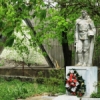
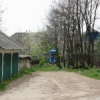
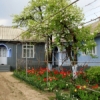
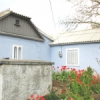
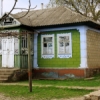
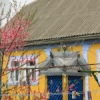

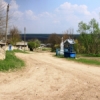
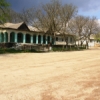











 My playlists
My playlists